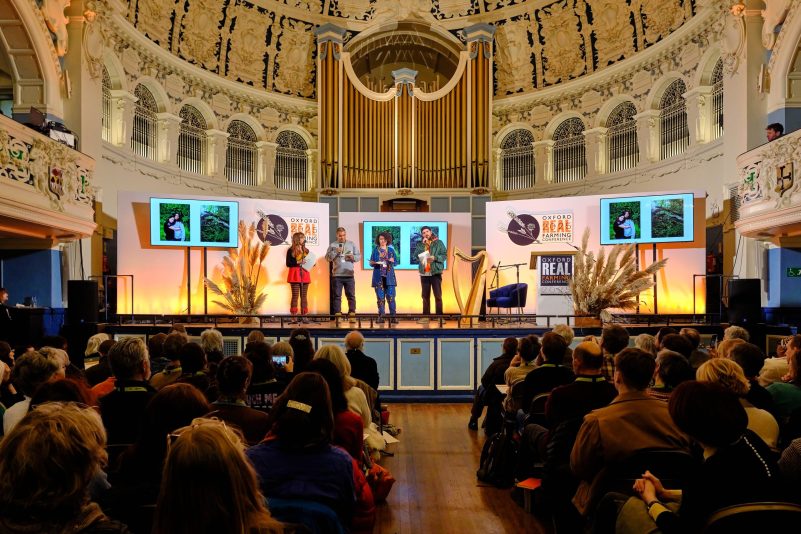Observations from the farming front line. What can LUNZ learn from the Oxford Real Farming Conference?

When comparing the Oxford Farming Conference with its ’Real’ counterpart down the road, one participant characterised the distinction as Wool (the latter) vs Tweed – indicative of the participants’ clothing choices whilst inferring other differences (income, politics, philosophy etc)…
If we were to extend the metaphor to the LUNZ Hub, the garment that springs to mind is the lab coat – reflecting the Hub’s research focus, but also its personality – theoretical and abstract – expert but arguably a little remote.
This caricature is supported by a glance at our outputs (subject matter and language) – a reflection (one year in) of our central aim to bridge the gap between research and policy, and therefore deploy the jargon familiar to both audiences.
However ORFC provided a timely reminder of the need for LUNZ to achieve other objectives – to better reflect the needs and expectations of the farming community (the ‘end user’ of much of our work), to both engage with, and learn from farmers, and (another LUNZ objective) to ‘do things differently’.
So what does ORFC have to tell LUNZ – as a barometer of sentiment, priority and interest among farmers in the face of climate change and changing policy. I noticed the following:
- Compared with other years, this felt like a fairly policy-lite ORFC (with the exception of the Sustain/Soil Association events in Jesus College). Most sessions dealt with the day-to-day practicalities of farming sustainably at the expense of some of the more wonkish aspects – ELMs, nature markets etc. I sensed that this reflects greater understanding of (albeit not necessarily less frustration with) the former, and fatigue and growing scepticism with the latter. It also reflects an urgency – farmers wanting to just ‘get on with it’, and not wait for external policy and economic frameworks to provide direction.
- One term that was rarely heard at ORFC was ‘research’ – despite the fact that nearly every session provide a platform for innovative learnings from beetle banks to minimum tillage. Instead, presenters referred their work as an ‘experiment’ – often in the face of new challenges and changed circumstances, and described outcomes in terms of observed change – visual and sentiment, rather than numbers on graphs. This is indicative of the conference’s core purpose – to foster peer-to-peer learning, rather than contribute to peer-reviewed literature.
- I found it telling that, while Climate change loomed large at ORFC, participants rarely used the term, instead referring to its impact – ‘extreme weather’ (especially wet). Whilst Climate Change and its comrade ‘Net Zero’ can seem remote and overwhelming, ‘weather’ (even when extreme) is familiar, relatable and surmountable, as farmers have demonstrated for generations. Their focus on pragmatic adaptation – evolution rather than revolution – is a useful lesson for those stakeholders calling for an immediate sea-change in the industry.
With these points in mind, what can the LUNZ Hub do to support farmers? The following points spring to mind
- Help on- farm researchers to scale up their ‘experiments’ – to capture and harness knowledge, and incorporate it into institution-led studies (e.g. through the living laboratory approach).
- Recognise that peer-to peer learning is the most effective driver of knowledge exchange – and incorporate the language farmers use to talk to one another into our own work
- Be open-minded about what success (and failure) looks like – and how it should be quantified – an uplift in optimism is as important as an uplift in carbon – but harder to capture by raw data alone
- Identify the barriers to government schemes and nature markets from the farmers’ point of view – understand the social and cultural obstacles, not just the scientific ones. Remember that most farmers want to be farmers (food producers) first.
Plans are underway, to bridge the gap between LUNZ and farmers, including through participation at farmer events throughout the year. The lab coat needs to be able to match the wool and the tweed – it should also get some mud on it!

Matthew Orman
Communications
Subscribe to our Newsletter
A quarterly update of all LUNZ Hub activities, events and news stories.
